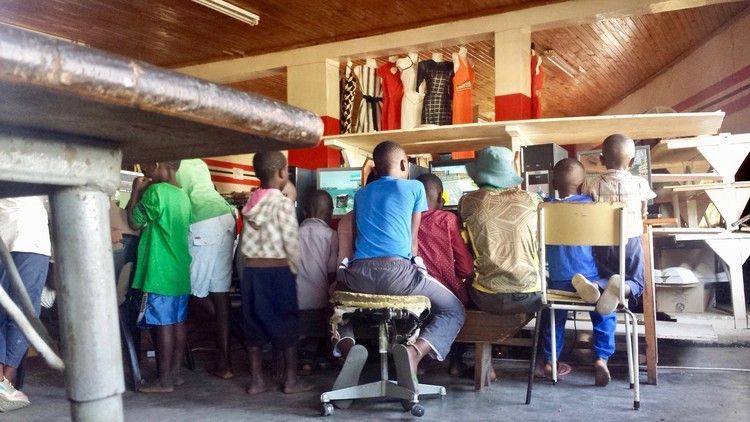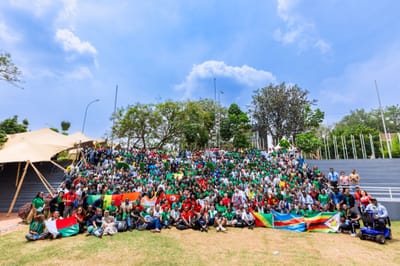“I´m studying Biochemistry, last semester if we ever finish!” chuckles Tariro 24, a student in Harare the capital of Zimbabwe. Tariro´s fate mirrors that of thousands of university students in Zimbabwe – who in addition to facing a distressed economy – are now grounded at home by the coronavirus disease 2019 (Covid-19).
Her and many struggles to follow up on internet lessons in homes where power cuts are frequent and internet data bundles are pricey.
Before the outbreak of the COVID-19 pandemic, prospects for Zimbabwe´s university graduates were discouraging. Zimbabwe has one of the world´s highest inflation rates which stands at 960% according to a measurement developed by Steve Hanke an economics professor at John Hopkins. Zimbabwe´s higher education ministry says 30 000 college students graduate yearly. Many struggles to hold down a job in an economy is blighted by up to 80% unemployment. In recent years, it has become a spectacle to spot graduates selling mangoes on the streets whilst donning graduation gowns and caps.
COVID-19 shutdown in Zimbabwe
Now, students have been directed to go home and sit out the pandemic.
The University of Zimbabwe, the country's biggest, shut down on 24 March 2020 in line with a presidential order to close all schools, colleges, and universities.
“This recess is a precautionary measure to curb the spread of Coronavirus (COVID19). This comes after one student and a staff member who had flu-like symptoms tested positive to coronavirus,” its director of information, Ndai Nyamakura. NUST, Zimbabwe´s top sciences university did similarly too and vowed to shift focus to what it terms ´technology-based alternative methods of teaching´."
Yet, home-based online education is a quandary for students sitting in lounges and kitchens.
First, electricity flickers only for a few hours each day despite that Zimbabwe used to be one of Afrika´s most industrialized countries. “Most of the night when streets are silent, I´ve to study microbiology courses by candlelight,” moans Tariro the student.
“Candles irritate my eyes. I fall asleep, face onto textbook pages.” In Zimbabwe, it´s usually the well-off who can afford the diesel to power home generators or solar home lighting. When electricity is finally switched on, students like Tariro can barely afford to connect. Zimbabwe´s mobile internet is the most expensive in sub-Sahara Africa, a report found in 2019. “It´s a choice between using the money to buy bread for my family or forking out $21 a month to purchase home Wi-Fi. We choose food.”
Hope
However, it is not all gloomy for Zimbabwe students grounded at home by COVID-19. Lectures, assignments can be proctored via video links or apps like Slack everywhere.
“Yes, it is possible. The required infrastructure is already in place to some extent,” says Dr. Godfrey Gandawa, Zimbabwe's former deputy minister of higher education. In fact, Zimbabwe has an advantage, Gandawa explains. Zimbabwe has 56 internet penetration. This is ahead of South Africa, Africa´s richest country, which is at 55%. Given its weak economy, it can be argued Zimbabwe has done well compared to other Africa in establishing internet systems, Gandawa argues. Education can be brought to students at home via digital means. “What´s needed is a change of organizational culture in our educational system to adopt the ubiquitous social technologies such as WhatsApp. There are 5, 6 million WhatsApp users (in Zimbabwe) and companies are already developing products such as banking via these mediums. The widely assumed thinking in government is: we need more investment yet we are failing to exploit low-hanging fruit.”
Mr. Gandawa says when he was still a minister, he made plans for Zimbabwe to increase internet education delivery. “We were in the process of developing innovative software tools for use by colleges and universities in enrolment, student management, and course dissemination, tools that would have been more sophisticated like Blackboard. Unfortunately, those STEM plans were cut short by the 2017 military coup that removed us from the government.”
The biggest obstacle to online/non-contact education to prosper for students in Zimbabwe amidst Covid is not the absence of internet infrastructure buts a lack of awareness about existing opportunities. “There is no reason why a high school teacher should not have a disciplined WhatsApp group of their students where they share rich media content useful to their studies,” Gandawa says.
However bad the situation, prospects for Zimbabwe´s university students sitting at home won’t totally disappear. Already the University of Zimbabwe´s labs are prototyping and manufacturing medical hand sanitizers for distribution to frontline health. Engineering courses in Zimbabwe can actually boom online, Gandawa says. “Yes, the safest way to do science is through simulation. With the growth of Virtual Reality, the cost of simulation will go down. It is much easier to tinker with an engine virtually before you encounter the real thing.”
Education is dynamic and should be tailor-made to suit the needs of every situation, says Albiona Mataranyika, the president of the student representative council at the University of Zimbabwe. But for Zimbabwe´s students gagged at home by Covid, she asks:
“On the other hand can they afford e-learning?”
Note: This article was first published in 2020.
— By Audrey Natsai Simango & Ray Mwareya







